Desensitisation Dental Laser

Desensitisation to treat dental hypersensitivity
Desensitisation dental laser is used to treat dental hypersensitivity. Dental sensitivity is most often caused by gum recession (when the gums migrate away from the enamel of a tooth). Tooth hypersensitivity is a frequent condition that causes discomfort and sometimes severe pain. This happens when the underlying tooth roots are exposed. These roots contain small pores (tubules) which lead directly to the nerve of the tooth. As a result pain, pressure, and hot and cold stimuli can travel down the tubules triggering the nerve. Gums usually recede due to poor oral hygiene or due to incorrect ways of brushing teeth.
Desensitization of teeth
Desensitizing medications are applied by dentists and seal the exposed microscopic pores in the dentin layer of teeth that cause sensitivity.
Desensitizing medications are applied to sensitive by the dentist. It is dispensed from a small bottle and applied with a fine brush.
If a patient is experiencing more than a mild sensitivity to temperature extremes or sweets, and the dentist has ruled out pulpitis (inflamed tooth pulp), tooth decay, infection, or gum disease as a cause, desensitizing medications may be used to seal the microscopic pores of exposed root surfaces.
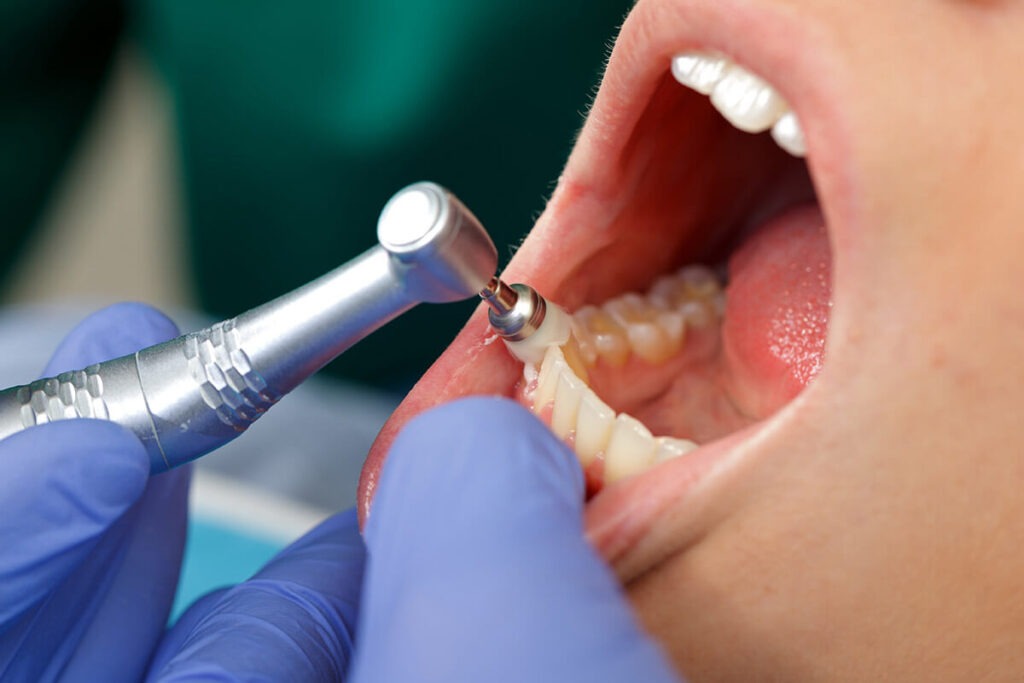
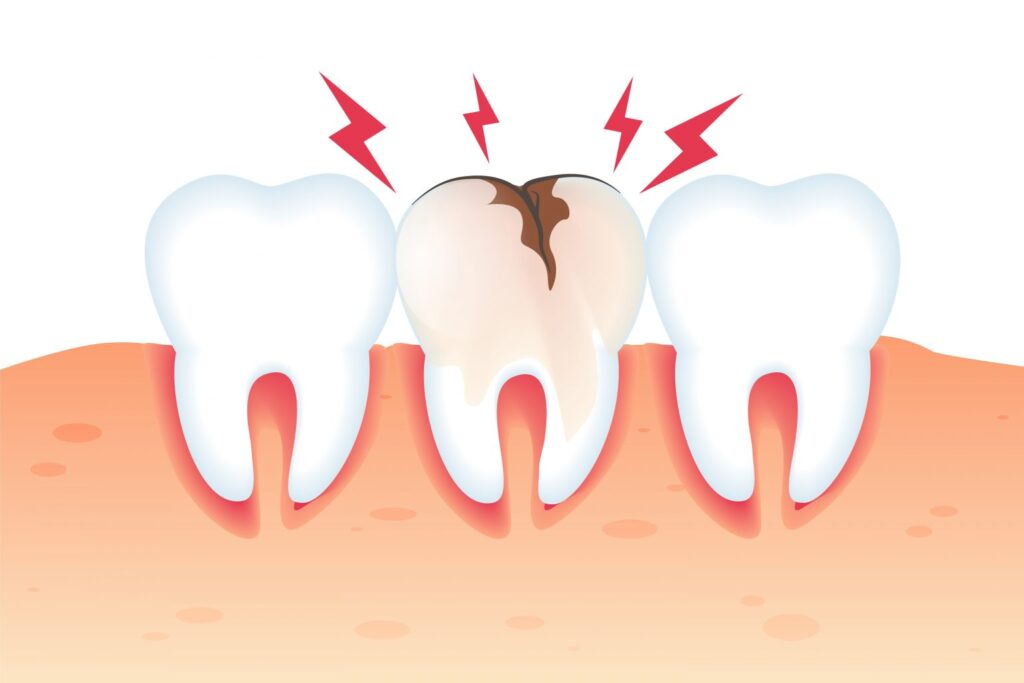
Why do we have dental hypersensitivity?
As gums start to pull back and expose the dentin (a surface under the gums), you may suffer from sensitivity. This very soft layer is what makes up your tooth root and has tubules that lead to your tooth nerve. When you eat something too cold or hot or sweet, these tubules send signals to your nerve causing you pain.
Wear and tear from brushing too hard, or using the wrong type of toothbrush.
Night grinding or clenching habit.
Tooth decay occurring at the gum line.
Some teeth whitening products can lead to temporary or permanent sensitivity.
Gingivitis can inflame gums and cause them to pull back.
Chipped, broken or damaged teeth that may have bacteria present can inflame the pulp and lead to sensitivity.
Too much plaque buildup on the root surface may lead to sensitivity.
Cracked teeth.
Recent dental work – such as teeth cleaning, crowns, root planning and restoration. This is temporary and often goes away in 4 to 6 weeks
Eating acidic foods that wear down your tooth’s enamel can lead to sensitivity.
Desensitizing methods and products

Desensitizing toothpaste
After using over a period of time, desensitizing toothpaste may provide relief. There are a variety of products available over-the-counter.

Crowns or inlays
These may fix a tooth flaw or decay that is causing sensitivity.

Fluoride
Fluoride application on the tooth surfaces may help relieve sensitivity.

Desensitizing or bonding agents
Occasionally, exposed root surfaces can be treated by applying bonding resin to the sensitive root surfaces. A local anesthetic might be needed.
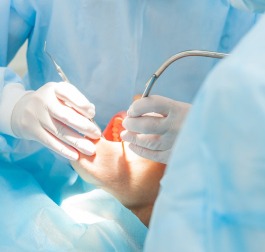
Surgical gum graft
If gums are receded, the dentist may take a small portion of gums from some other area and place the gums so that regeneration occurs.
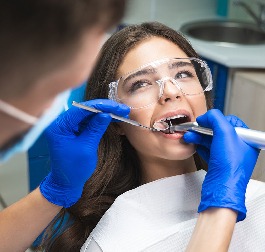
Root canal treatment
If sensitive teeth cause severe pain and other treatments aren’t effective, your dentist might recommend a root canal procedure which used to treat problems in the tooth’s soft core (dental pulp). While this might seem like a major treatment, it’s considered the most successful technique for eliminating tooth sensitivity.
Advantages or benefits of Desensitizing Medications
- Rarely, desensitizing medications permanently relieve the sharp pain associated with exposed tooth roots, without the use of dental restorations (such as fillings) over the exposed root, or performing gum surgery to cover the exposed tooth root.
- Desensitizing medications can eliminate the thermal sensitivity that frequently results after a tooth has been worked on.
- Desensitizing is an easy and quick procedure to undergo, that can achieve permanent relief from symptoms.
- Desensitizing is completely non-invasive (no removal of tooth structure is necessary).
Potential risks and disadvantages of Desensitizing Medications
- Desensitizing medications can not be used in patients who are allergic to any of the ingredients (glutardaldehyde, 2-hydroxyethyl-methacrylate or 4-META, etc.).
- Rarely, patients may become sensitized to the ingredients through inhalation or skin contact.
- Few commonly used desensitizing medications may present a risk of serious damage to eyes if it comes in contact with them.
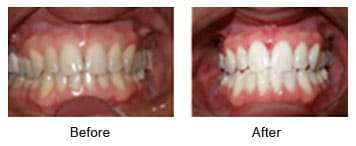

Desensitisation dental Laser
Conventional desensitizing agents like professional pastes, toothpaste and mouthwashes aim to obliterate the exposed pores or tubules. At Bangalore Dental solutions and Implant center apart from the traditional ways, we have introduced pain-free Desensitization dental Laser treatment. Laser desensitization was introduced as an alternative efficient tool for the immediate treatment of tooth hypersensitivity. Lasers have been proven to be effective at decreasing or even eliminating dental sensitivity. It is a simple procedure which requires no anesthetic. It directs the laser energy into the sensitive areas and the laser suppresses the potential of the nerve fibers by eliminating the tubules. At our clinic we do this fast, cost effective and pain free procedure with high success rate.
